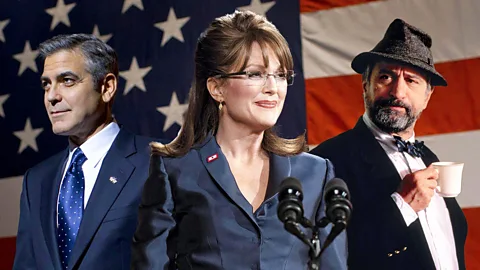 Yun Sun Park/ BBC/ Alamy
Yun Sun Park/ BBC/ AlamyThe tension is building in the race for the White House – and that tension runs through Hollywood’s most gripping political dramas, comedies and documentaries.
The current campaign may be the most tumultuous in US history, with a late-in-the-day candidate change and two dramatic debates, along with the possibility (again) of the first woman president. But the race for the White House has intrigued film-makers for decades, with some startling results. Even Frank Capra, the goody-two-shoes of US cinema, cast a sceptical eye on the process. Some films are thinly veiled fictions, others prescient fantasies, but all find themes that go the heart of US democracy and ideals. Here are some of the best presidential election movies, including an under-appreciated gem from Mike Nichols and Elaine May, another starring Ryan Gosling and George Clooney, and a West Wing warm-up from Aaron Sorkin.
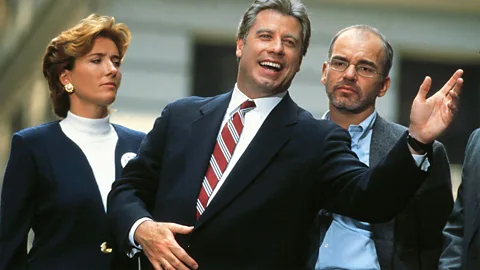 Alamy
Alamy1. Primary Colors (1998) dir Mike Nichols
One of Mike Nichols’ best and least-known films, with a glittering screenplay by Elaine May, this satire follows a not-at-all veiled fictional version of Bill Clinton through the primaries on his way to the White House. John Travolta is unlikely but brilliant as Jack Stanton, a Southern governor who can charm his way out of anything. Travolta captures the Clinton charisma as well as the empathetic “I feel your pain” glances without becoming a caricature. Emma Thompson plays his wife, Susan, a Hillary before she had a political career of her own, but whose instincts are as sharp as anyone’s. Based on the 1996 novel by the journalist Joe Klein (originally published as Anonymous), the film goes behind the scenes as the campaign tries to dispel rumours – some true, some not – of Stanton’s womanising. Adrian Lester, as an idealistic young campaign manager, embodies the theme of lost innocence that runs through so many movies about US elections. The film is also very funny even as it raises one of the fundamental questions of 20th and 21st-Century politics: does a little spin and subterfuge matter if it helps put someone who’ll do the best for the US in the White House? Even Lincoln stretched the truth, Stanton argues.
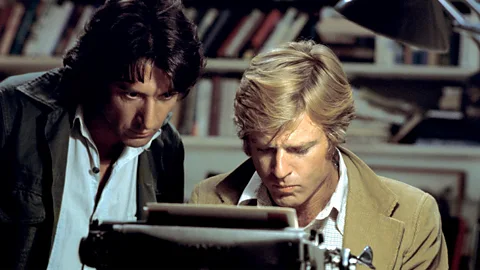 Alamy
Alamy2. All the President’s Men (1976) dir Alan J Pakula
One of the great films of our time, All the President’s Men is of course front-and-centre about journalism. But take another look as you’ll see how much it is also about dirty campaign politics. When Robert Redford and Dustin Hoffman, as Washington Post reporters Bob Woodward and Carl Bernstein, track down the truth behind the Watergate break-in and the cover-up that led to Richard Nixon’s resignation, much of their investigation leads them to CREEP, the all-too-accurate acronym for the Republicans’ Committee to Re-elect the President. That committee’s bungled attempt to steal information from the Democratic National Committee headquarters in the Watergate building was just the first clue to exposing all sorts of other campaign creepiness from illegal payments to character assassination. Still suspenseful every time you watch it, the film beautifully weaves together many threads about the US. The corruption behind Nixon’s 1972 campaign is one of its themes with enduring, cautionary impact.
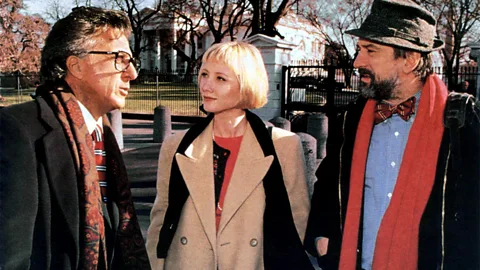 Alamy
Alamy3. Wag the Dog (1997) dir Barry Levinson
This satire from the 1990s seems timelier than ever now, in the age of artificial intelligence and disputes about what constitutes a fact. Robert De Niro is at his droll best as Conrad Brean, a campaign consultant called in when a story about the president’s affair with a young woman breaks two weeks before the election that will keep him in office. (One jaw-dropping aside: the film was released just a month before the Clinton-Lewinsky scandal broke. The Clinton presidency really was a gift to film-makers.) To save the campaign, Brean recruits a Hollywood producer – hilariously played as the ultimate narcissist by Dustin Hoffman – to film evidence of a war with Albania that doesn’t really exist. They even find a war hero who wasn’t a hero and make him a celebrity. The press buys it, the public buys it and who’s to say what’s real anymore? The film’s portrayal of how politics and Hollywood merge is taken for granted now, but David Mamet’s biting screenplay and Barry Levinson’s sharp direction hold up perfectly.
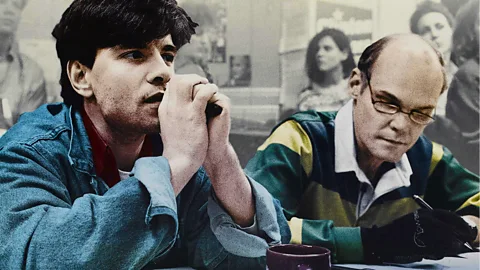 Alamy
Alamy4. The War Room (1993) dir DA Pennebaker and Chris Hegedus
DA Pennebaker and Chris Hegedus’s groundbreaking documentary is based on amazing behind-the-scenes access to Bill Clinton’s first run for president in 1992, and stands as the real-life version of Primary Colors. Clinton appears only briefly. The central characters are the strategist James Carville and the communications director, a baby-faced George Stephanopoulos, long before he became a news anchor. A sign on the wall of the campaign office gives us Carville’s now famous line about what mattered most: “The Economy. Stupid.” Stephanopoulos is seen putting out media fires, including a phone conversation in which he tells a reporter working on a rumour about Clinton that he will look foolish and have no future if he writes that lie, almost making that response sound like a fact not a threat. (That particular rumour has, in fact, long since been discredited.) The film is exhilarating as it captures all the youthful energy of a campaign running on hope and adrenaline.
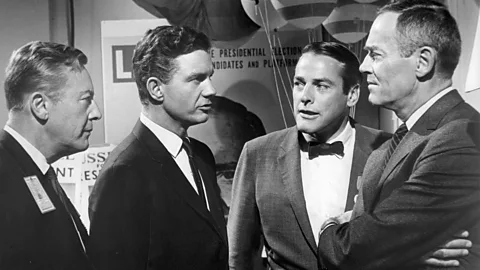 Getty Images
Getty Images5. The Best Man (1964) dir Franklin J Schaffner
Gore Vidal’s screenplay is firmly in the JFK era, but its take on the machinations to choose a presidential nominee at a split convention still goes to the heart of many issues in campaign politics, including money, promises made in exchange for support and skeletons in the candidates’ closets. Henry Fonda plays William Russell, the experienced secretary of state, fondly called an egghead by one of his supporters. “Do you think people mistrust intellectuals like you in politics?” one reporter asks him. Senator Joe Cantwell (Cliff Robertson, who the year before played Kennedy as a war hero in the hagiographic PT-109) is his slick, young, ends-justifies-the means rival. Each candidate has dirt on the other, but will they use it? Vidal takes a jab at the era’s homophobia by making one of the secrets the rumour of a gay affair, and complicates the issue when it turns out that one of the rumours is false. The noble ending seems forced, but until then the film remains full of intrigue and soul-searching questions.
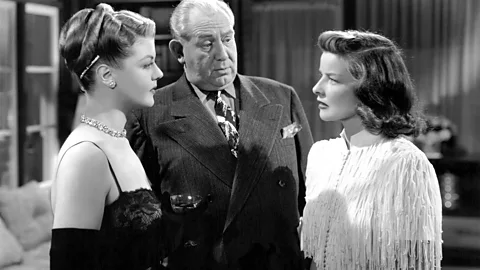 Getty Images
Getty Images6. State of the Union (1948) dir Frank Capra
This strong but little-known Spencer Tracy and Katharine Hepburn drama was directed by Frank Capra, and its sharp-eyed cynicism about the political process makes it one of his least corny films. Tracy plays Grant Matthews, a successful businessman married to Mary (Hepburn) but involved in an affair with a politically ambitious newspaper heiress, Kay Thorndyke, played by Angela Lansbury. Kay wants to use her money and influence to put Grant in the White House, but they’ll need Mary to play along as the loyal spouse. Hepburn captures Mary’s hurt and disappointment when she realises she’s being used as a campaign prop (the spouse as prop is one of the most intractable aspects of running for office). Tracy makes Grant an essentially good man who for a time is co-opted by ambition and political handlers. Like any Capra film, this one an idealistic ending, but its true interest for us today is its clarity about the seductiveness of power and the compromises that go into electing a president.
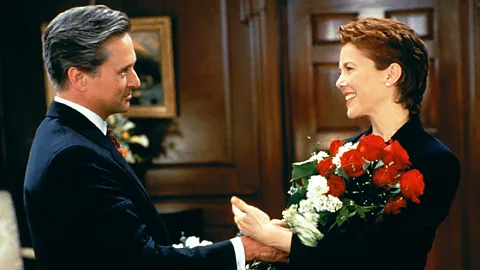 Alamy
Alamy7. The American President (1995) dir Rob Reiner
If you love The West Wing but wish it were more of a romcom, this is the film for you. Before creating his series, Aaron Sorkin wrote the screenplay for this Rob Reiner politics-tinged romance about Andrew Shepherd, charmingly played by Michael Douglas, a widowed president and single father running for re-election. When he falls for an environmental lobbyist, Sydney Ellen Wade, played with equal charm by Annette Bening, his advisors tell him to keep her out of the public eye and his rivals start attacking her. Martin Sheen, before he was President Bartlett on The West Wing, plays Shepherd’s chief of staff and best friend, and there is a hint of the television series in the wrangling to get votes for Shepherd’s crime bill to pass through Congress, along with the question of whether he will jeopardise his re-election by supporting an environmental bill. But the most characteristic Sorkin element is the rosy idealism about the possibility of politics to do some good, an idea that makes this a buoyant outlier among more typical, sceptical 1990s political movies.
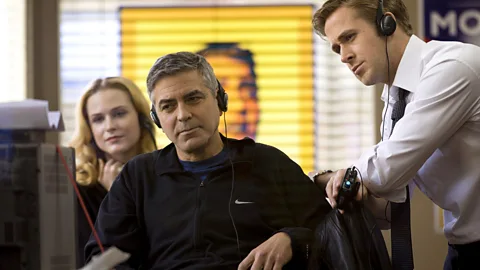 Alamy
Alamy8. The Ides of March (2011) dir George Clooney
This dynamic film starring Ryan Gosling and George Clooney, who also directed, didn’t make much of an impact when it was released, possibly because its story, with a whiff of the Clinton sex scandals, might have seemed tired during the Obama years. Seen now, it smartly taps into the persistent theme of lost political innocence, with Gosling as Stephen Meyers, a young but savvy campaign strategist, who goes to work for Mike Morris (Clooney) a politically gifted governor running for president. Philip Seymour Hoffman plays Stephen’s jaded boss and Paul Giamatti is the manager of a rival campaign in a cast that includes Jeffrey Wright and Marisa Tomei. Evan Rachel Wood plays a young Morris intern, and the very mention of that role is enough to hint that you know where the plot is heading. But the gamesmanship among the candidates, and between the campaigns and the press, is so smart and well-played that the predictability hardly matters.
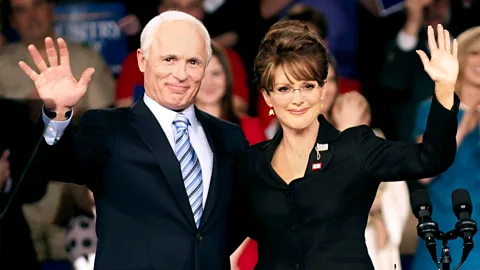 Alamy
Alamy9. Game Change (2012) dir Jay Roach
You might laugh to keep from crying at this fact-based film about how John McCain’s campaign chose Alaska Governor Sarah Palin as his 2008 running mate, a cynical, haphazard move that backfired in every possible way. Jay Roach’s comedy-of-errors stays close to reality, based on the reported book by John Heilemann and Mark Halperin, and at times edits actual reporters and politicians into scenes with the actors. Woody Harrelson plays Steve Schmidt, the strategist who insists that McCain (Ed Harris) has to do something game-changing, like choosing a woman, to have a chance of beating Obama. With time running out, and little vetting, they choose the inexperienced but telegenic Palin. Julianne Moore brings Palin to life with remarkable verisimilitude as she captures her odd inflections of language, and with some sympathy for how far she is out of her depth. She is so clueless about foreign affairs, and for that matter foreign countries, that Nicolle Wallace (Sarah Paulson), the director of communications who is trying to guide her through, just gives up. Sobering yet still a romp, this film might be the only silver lining in the whole Palin debacle.
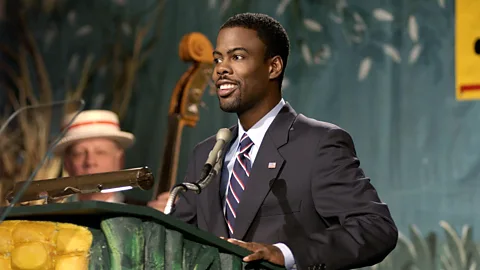 Alamy
Alamy10. Head of State (2003) dir Chris Rock
The Obama presidency was just a gleam in America’s eye when Chris Rock wrote, directed and starred in this comedy as Mays Gilliam, a lowly local politician in Washington, DC who is recruited by the Democrats to run for president when their candidate dies shortly before the election. It’s all a ruse: the party politicians want to get credit for running a black candidate, who is sure to lose, while keeping the spot open for one of their own insiders next term. The joke is on them, of course. Mays is a straight-talking guy, in touch with working people and willing to tell them the no-nonsense truth about everything, pointing to inequities and getting crowds to chant, “That ain’t right!” Rock’s stand-up comedy is often satiric, but this film is more broadly comic – Bernie Mac plays Mays’ loud, brash brother – and more earnest. It echoes the question raised way back in 1948 by State of the Union: can a truth-teller win? Head of State doesn’t entirely work. It’s distracting when the rapper Nate Dog pops in and out of the film with musical narration. But it is breezy and fun, so ignore that 30 per cent rating on Rotten Tomatoes.
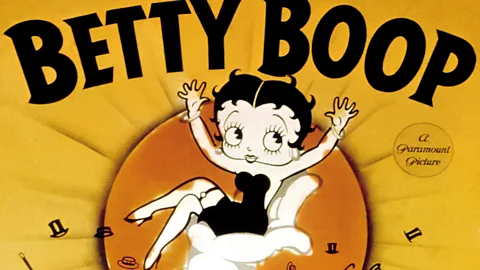 Getty Images
Getty Images11. Bonus Short: Betty Boop for President (1932) dir Dave Fleischer
Back when the very idea of a woman president was preposterous, Betty Boop ran. The cartoon vamp campaigned with a song in this six-and-a-half-minute animated comedy, with promises of ice cream and shared wealth. “Some of you have money / While some are poor, you know,” she sings. “If you send me to Washington / I’ll just divide the dough.” She imagines herself in front of a split Congress, the elephants on one side and the donkeys on the other disagreeing on everything. The short is a delightful little oddity, but honestly, there have been worse candidates.






